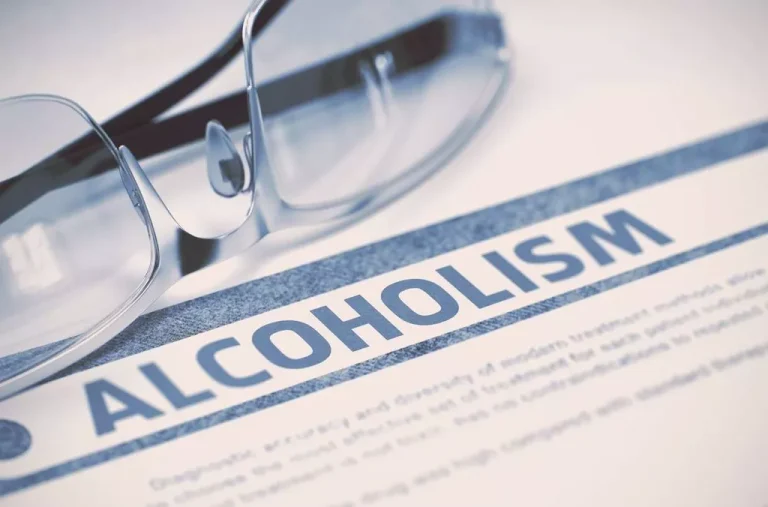
The study sample was one of convenience, purposely selected for alcohol detoxification and rehabilitation. Secondly no past psychiatric history of depression or family history of mood disorders was obtained from the participants at intake. Various studies have shown both a metabolic and neurophysiological link between alcohol use and depression [34–42]. While some studies have reported gender differences in the link between alcohol use disorders and depression [43–46], others have not [47].
What are the immediate clinical implications of coexisting depressive and anxiety states among alcoholics?
It is important to note that medications for alcohol use disorder are a first-line treatment. They can be helpful for many, so talk to your doctor about this option. If you’re dealing with severe alcohol withdrawal symptoms, such as anxiety, insomnia, nausea, and hallucinations, among others, then your doctor may suggest medications such as chlordiazepoxide or other benzodiazepines. Conversely, the three types of studies highlighted in this section indicate that if an association between alcoholism and anxiety/depressive disorders does exist, it is likely to operate in a relatively small subgroup of alcoholics. Several separate lines of evidence cast doubt on the possibility that high proportions of alcoholics have severe, long-term depressive or anxiety disorders. As noted previously, for patients with more severe disorders or symptoms, consult a psychiatrist (one with an addiction specialty, if available) for medication support, as well as a therapist with an addiction specialty for behavioral healthcare.
Treatment of Co-Occurring AUD and Depressive Disorders

The finding of a high prevalence rate of depression among the study participants calls for the need to evaluate persons for depression before and after alcohol dependence treatment. In addition it is important to obtain family history of mood disorder and life time diagnosis of depression since the presence of such histories puts the individual at a greater risk of developing major depression. When patients who drink heavily report anxiety, it helps to create a timeline with them to discern whether the anxiety is alcohol-induced or, instead, a pre-existing or primary anxiety disorder, which can help set expectations and a treatment plan. Sample timeline queries include the ages of onset of anxiety symptoms and of alcohol use, the longest period of abstinence, the presence or lack of anxiety symptoms during phases of alcohol drinking and extended phases of abstinence, and the family history of anxiety disorders and of AUD.
- It can get worse over time, especially when combined with regular or heavy alcohol use.
- Only one notable study of COA’s has demonstrated a higher-than-expected risk for these major psychiatric disorders.
- In summary, none of the three types of studies conducted (i.e., family studies, prospective investigations, and studies involving COA’s) proves an absence of a relationship between long-term anxiety or depressive disorders and alcoholism.
Related Articles
Both substances may make a person feel less alert, so they may be dangerous if a person takes them together. This is especially true for those who use other medications or have a chronic medical condition. Alcohol may alcohol and depression even increase the risk of depression in babies exposed to alcohol in the womb. Children born with fetal alcohol spectrum disorders are more likely to develop depression later, according to an earlier study from 2010.

This also highlights the potential utility of employing antidepressant medications early in treatment in this dually diagnosed population. The complexity of the relationship between AUD and depressive disorders makes accurate diagnostic assessment challenging. For example, clinicians often wonder whether a patient’s depressive symptoms are occurring as a result of a primary depressive disorder or are due to the effects of chronic alcohol use. Similarly, it is difficult to predict whether depressive symptoms will look the same or different if the pattern of alcohol use changes, and vice versa. Finally, the patient’s self-report of the relationship between drinking and depressive symptoms may not be reliable. Therefore, this paper aims to review the literature on co-occurring depressive disorders and AUD, and to suggest a framework by which to conceptualize the clinical assessment and management of these disorders when they occur together.
Despite finding that rates of alcohol abuse or dependence were relatively high in both samples, the researchers saw no evidence that preexisting depressive or anxiety disorders occurred at higher rates among those subjects who later developed alcoholism. While clinical experience and epidemiologic data highlight the frequent co-occurrence of AUD and depressive disorders, there is little consensus on the etiology of this relationship. The integrative approach to treatment of these co-occurring disorders that we will discuss in this paper is rooted in an appreciation https://ecosoberhouse.com/ of these complex relationships. The mood disorders that most commonly co-occur with AUD are major depressive disorder and bipolar disorder. The co-occurrence of AUD and another mental health disorder can complicate the diagnoses and negatively impact the clinical course of both conditions. Many clinical features of AUD have significant overlap with other psychiatric disorders, including sleep disturbances and negative emotional states such as worry, dysphoria, sadness, or irritability that often occur during cycles of alcohol intoxication, withdrawal, and craving.
Most people who care about you will be glad to support your efforts to reduce your drinking or drug use. As many as 7% of college students admit to having engaged in sexual activity as a result of alcohol influence, and 90% of all campus rapes occur when alcohol has been used by either the victim or the assailant. Alcohol lowers inhibitions, and can make people more vulnerable to troublesome situations.
Treatment of the Depressed Alcoholic Patient

